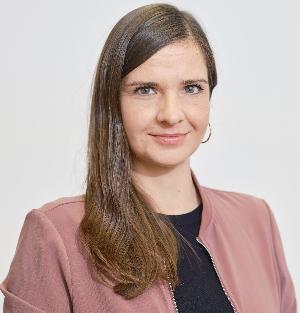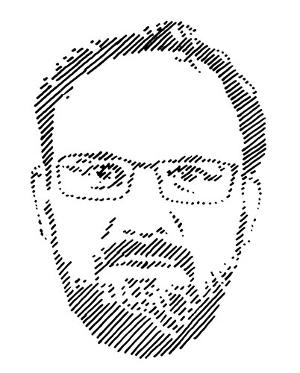Media, Publics & Democracy
Media are crucial for the circulation of information in societies and creating a public sphere in modern democracies. Media are fundamentally changing the communicative relations of our world. With the advent of digital in particular social media the question of their contribution to the transformation of the public sphere takes on a new quality. It is necessary to ask how the logic of public communication is changing because of datafication, algorithmisation, and plattformisation. What do these changes mean for audiences, users, and publics? What does it mean for the quality of public discourse, participation, and integration in modern societies?
Associated Researchers

- +43 463 2700 1833
- Daniel [dot] Issl [at] aau [dot] at

- +43 463 2700 1829
- Joerg-Uwe [dot] Nieland [at] aau [dot] at

Recent Publications
To view the recent publications, please follow this link.
Gentile, M. F., Lowery, G., Noetzel, S., Zemanova, S., Lecheler, S., & Peter, C. (2022). Social Campaigns to Social Change? Sexual Violence Framing in U.S. News before and after #metoo. Journalism, Online First. https://doi.org/10.1177/14648849211056386
Peter, C. (2022). Media Coverage as Mirror or Molder? An Inference‐Based Framework. Media and Communication, 10(3), 183-195. https://doi.org/10.17645/mac.v10i3.5453
Peter, C. & Beckers, K. (2022). Vox pops vs. poll results—effects of consonant and dissonant displays of public opinion in news coverage. International Journal of Public Opinion Research, 34, 1- 12. https://doi.org/10.1093/ijpor/edac017
Saumer, M., Stubenvoll, M., & Matthes, J. (2022). Effects of threatening government communication about COVID-19 on health protection measures. MedienJournal, 45(3), 16–30. https://doi.org/10.24989/medienjournal.v45i3.2038
Stubenvoll, M. (2022). Investigating the heterogeneity of misperceptions: A latent profile analysis of COVID-19 beliefs and their consequences for information-seeking. Science Communication, 44(6), 759–786. https://doi.org/10.1177/10755470221142304
Stubenvoll, M., & Matthes, J. (2022). Four paths to misperceptions: A panel study on resistance against journalistic evidence. Media Psychology, 25(2), 318–341. https://doi.org/10.1080/15213269.2021.1951767
Stubenvoll, M., & Matthes, J. (2022). Why retractions of numerical misinformation fail: The anchoring effect of inaccurate numbers in the news. Journalism & Mass Communication Quarterly, 99(2), 368–389. https://doi.org/10.1177/10776990211021800
Woschnagg, F., Kaltenbrunner, A., & Karmasin, M. (2023). (Un) believable: the perceived credibility of Covid-19 information in Austria. Medien Journal, 46(3), 4-25.
Woschnagg, F., Kaltenbrunner A., Karmasin, M. (2022). Österreichischer Lokaljournalismus und die Corona-Pandemie. In A. Kaltenbrunner, S. Luef, R. Lugschitz, M. Karmasin, & D. Kraus (Hrsg.), Der Journalismus-Report VII. Lokaljournalismus und Innovation (S. 116-136). Facultas.
Further relevant Publications
Brosius, H.-B., & Peter, C. (2016). Die Berichterstattung der Medien über Kriminalität und Justiz und ihre Wirkung auf die Öffentlichkeit. In U. Murmann (Ed.), Strafrecht und Medien. Göttingen: Universitätsverlag (pp. 37-49). Göttingen: Universitätsverlag. https://doi.org/10.17875/gup2016-957
Denner, N. & Peter, C. (2020). Lügenpresse, schreibt die Presse? Die Selbstthematisierung deutscher Tageszeitungen in Bezug auf den Begriff Lügenpresse. In R. Holfeld, M. Harnischmacher, E. Heinke, L. S. Lehner & M. Sengl (Hrsg.), Fake News & Desinformation – Herausforderungen für die vernetzte Gesellschaft und die empirische Forschung (S. 269-282). Baden-Baden: Nomos-Verlag. https://doi.org/10.5771/9783748901334-269
Göttlich, U. & Wieser, M. (2020). Plattformen unter Spannung. Diagnosen der Um-Ordnung im medienöffentlichen Raum. In B. Blättel-Mink (Hrsg.), Gesellschaft unter Spannung. DGS-Verhandlungsband 40. URL:https://publikationen.soziologie.de/index.php/kongressband_2020/issue/view/54
Hoffmann, D. & Nielsand, J.-U. (2019). Intime Erzählungen und transformative Schaffenspraktiken – Neuverhandlungen von Öffentlichkeit(en) im Kontext von Fan Fiction. In: Eisenegger, M., Ettinger, P., Blum, R., & Prinzing, M. (Hrsg.) „Intimisierung des Öffentlichen“. Mediensymposium Luzern (S. 67-83). Wiesbaden: Springer VS.
Hudelist, A. & Wieser, M. (2020). Freies Radio in Kärnten. Eine explorative Studie von Radio AGORA und seinen Hörer*innen. Klagenfurt: Drava.
Kamps, K., & Nieland, J.-U., (Hrsg.) (2006). Regieren und Kommunikation. Meinungsbildung, Entscheidungsfindung und gouvernementales Kommunikationsmanagement – Trends, Vergleiche, Perspektiven. Köln: Herbert von Halem Verlag.
Koch, T. & Peter, C. (2017). Effects of equivalence Framing on the perceived truth of political messages and the trustworthiness of politicians. Public Opinion Quarterly, 81, 847–865. doi: 10.1093/poq/nfx019
Krämer, B. & Peter, C. (2020). Exemplification effects: A meta-analysis. Human Communication Research, 40, 192–221. https://doi.org/10.1093/hcr/hqz024
Peter, C. (2019). The people’s voice—The people’s choice? How vox pop exemplars shape audience judgments as a function of populist attitudes. Journalism & Mass Communication Quarterly, 96, 1004-1024. doi: 10.1177/1077699019852323
Peter, C. & Koch, T. (2019). Countering misinformation: Strategies, challenges, and uncertainties. Studies in Communication and Media, 8, 431-445. doi: 10.5771/2192-4007-2019-4-431
Peter, C. & Zerback, T. (2020). Ordinary citizens in the news: A theoretical framework. Journalism Studies, 21(8), 1003-1016. https://doi.org/10.1080/1461670X.2020.1758190
Peter, C., & Koch, T. (2016). When debunking scientific myths fails (and when it does not): The backfire effect in the context of journalistic coverage and immediate judgments as prevention strategy. Science Communication, 38, 3-25. doi: 0.1177/1075547015613523.
Schatz, H., Nieland, J.-U. & Rössler, P. (Hrsg.) (2002). Politische Akteure in der Mediendemokratie. Politiker in den Fesseln der Medien? Wiesbaden: Westdeutscher Verlag.
Wimmer, J., Wallner, C., Winter, R., & Oelsner, K. (2018). (Mis)Understanding Political Participation: Digital Practices, New Forms of Participation and the Renewal of Democracy. Abingdon: Routledge.
Winter, R. (2010). Widerstand im Netz: Zur Herausbildung einer transnationalen Öffentlichkeit durch netzbasierte Kommunikation . Bielefeld: transcript.
Winter, R. (2019). Eigensinn, Widerstand und das Politische. Zum Verhältnis von Subjektivierung und demokratischer Politik In J. Straub, P. Chakkarath, & G. Rebane (Hrsg.), Diskurse der Psychologie: Kulturpsychologie in interdisziplinärer Perspektive. Hans-Kilian-Vorlesungen zur sozial- und kulturwissenschaftlichen Psychologie und zur integrativen Anthropologie (S. 355 – 374). Gießen: Psychosozial-Verlag.
Winter, R. (2020). Macht, Eigensinn und Widerstand – Kultur als Transformation und Politik: In D. K. Haensch (Hrsg.), Festschrift für Thomas Düllo: Band 3. Texturen: Nr. 7 – Wandeln (Festschrift für Thomas Düllo) (S. 219 – 247). Universität der Künste Berlin.
Winter, R. (2021). Der Kampf gegen die Ungleichheit. Die politische Dimension qualitativer Forschung. In M. Dietrich, I. Leser, K. Mruck, P. Ruppel, A. Schwentesius, & R. Vock (Hrsg.), Begegnen, Bewegen und Synergien stiften. Transdisziplinäre Beiträge zu Kulturen, Performanzen und Methoden (S. 379 – 394). Wiesbaden: Springer VS.
Winter, R. (2021). Öffentlichkeit. In S. Lorenz (Hrsg.), In Gesellschaft Richard Sennetts. Perspektiven auf ein Lebenswerk (S. 55 – 68). Bielefeld: transcript.
Zerback, T. & Peter, C. (2018). Exemplar effects on public opinion perception and attitudes: The moderating role of exemplar involvement. Human Communication Research, 44, 176-196. doi: 10.1093/hcr/hqx007
Quicklinks

Information for
Address
Universitätsstraße 65-67
9020 Klagenfurt am Wörthersee
Austria
+43 463 2700
uni [at] aau [dot] at
www.aau.at
Campus Plan
















